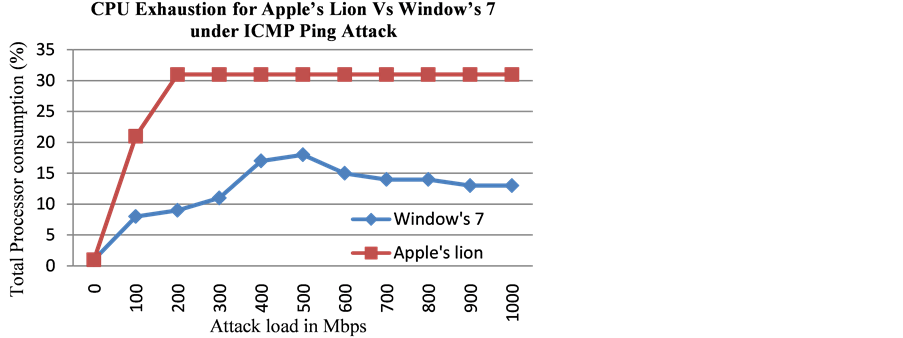

With the increase in the number of computers connected to Internet, the number of Distributed Denial of Service (DDoS) attacks has also been increasing. A DDoS attack consumes the computing resources of a computer or a server, by degrading its computing performance or by preventing legitimate users from accessing its services. Recently, Operating Systems (OS) are increasingly deploying embedded DDoS prevention schemes to prevent computing exhaustion caused by such attacks. In this paper, we compare the effectiveness of two popular operating systems, namely the Apple’s Lion and Microsoft’s Windows 7, against DDoS attacks. We compare the computing performance of these operating systems under two ICMP based DDoS attacks. Since the role of the OS is to manage the computer or servers resources as efficiently as possible, in this paper we investigate which OS manages its computing resources more efficiently. In this paper, we evaluate and compare the built-in security of these two operating systems by using an iMac computer which is capable of running both Windows 7 and Lion. The DDoS attacks that are simulated for this paper are the ICMP Ping and Land Attack. For this experiment, we measure the exhaustion of the processors and the number of Echo Request and Echo Reply messages that were generated under varying attack loads for both the Ping and Land Attack. From our experiments, we found that both operating systems were able to survive the attacks however they reacted a bit differently under attack. The Operating System Lion was handling both the Ping and Land attack in the exactly the same way, whereas Windows 7 handled the two attacks a bit differently, resulting in different processor consumptions by two different operating systems.
[“source=scirp”]





